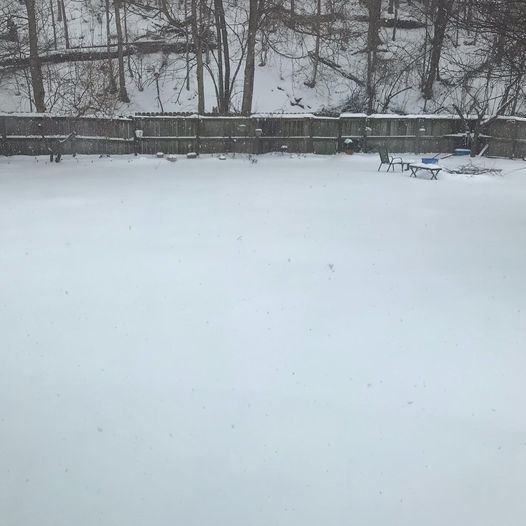FAQ: Can Snow Damage my Lawn?
Can snow damage my lawn is a good question because the answer is yes and no. Yes, it can damage your lawn. However, there are steps you can take to prevent it.
Can Snow Damage my Lawn?
Snow Mold
Yes, there is such a thing as snow mold. It’s a fungus that can kill grass. Grass matted together, covered with leaves and debris, or poorly irrigated is highly susceptible.
How to Prevent Snow Mold
- To prevent snow mold, use a winter-formulated nitrogen, phosphorus, and potassium fertilizer after the grass has stopped growing in late fall. Add November Lawn Fertilization to your to-do List
- Aerate your grass in the fall to help prevent moisture being trapped under the snow. What Is Lawn Aeration, and How Do You Know If Your Lawn Needs it?
- Also, mow your yard before the first snow. Grass taller than 4 inches can easily be bent and damaged by accumulating snow,
- Clean up your yard before winter. Decomposing leaves, grass clippings, and other debris can be a breeding ground for snow mold and other lawn diseases.
Ice Ice Baby
Ice is hazardous to grass. Because ice doesn’t stay still but moves, and that movement can cut grass to the roots and destroy patches of your lawn.
How to Stop the Ice
Aeration, once again, is an excellent way to stop ice build-up. When your lawn properly absorbs water, it seldom creates beds of ice. Also, removing areas where water forms pools and puddles is essential. Our backyard is at the bottom of a hill, (the featured image on this post is our backyard) and one area, in particular, would fill with water. We called it lake Clark. It took a lot of work to get anything to grow well, including glass. I considered planting rice! The solution was we hired Berger Hargis to install a French drain. Problem solved! What is a French Drain?
Another key is to only water your lawn when it’s 40 Fahrenheit or warmer, and even if it’s 40F in the afternoon but may turn colder after sunset, avoid watering.
Pro Tips:
- Never use salt on your lawn to remove snow or ice, and be careful when salting drives and walks next to your lawn.
- Mulching or using straw on garden beds and around trees can help protect them during long winter freezes.
- Stay off the grass. “…as the turf can be damaged from traffic when the soil is frozen or when there is frost on leaf and stem tissues.” — Purdue.edu — Cool-Season Turf Winterkill: Potential Losses and a Pathway to Recovery
Snow Can be a Good for Your Lawn Too
- Cold and snow will stop grass from germinating, which is the last thing you want in the winter. So, even if it warms a little, if there’s snow on your lawn, germination stops until it warms in spring.
- Snow gathers nitrogen from the air as it falls. When the snow melts, the nitrogen is absorbed by your lawn, making it a natural fertilizer.
- Snow can insulate your lawn and protect it from hard freezes that can be destructive to grass, especially the roots.
- Snow also adds moisture to your lawn when it melts, helping the new grass in the spring.
So, can snow damage your yard? Yes, it can, but the good news is you can avoid most of the potential damage from snow by preparing your yard before it comes.
How Can We Help You?
Berger Hargis has a company philosophy of providing personal excellence for all our services. Our growth and success have been due entirely to our commitment to honest, excellent customer service. The company has been built on the referral business we have received due to this philosophy.
If we can answer any questions about your lawn in winter or any time of year, please don’t hesitate to Contact Us.
About the Author
Randy Clark is a speaker, coach, and author. He publishes a weekly blog at Randy Clark Leadership.com. Randy is passionate about social media, leadership development, and flower gardening. He’s a beer geek, and on weekends he can be found fronting the Rock & Roll band Under the Radar. He’s the proud father of two educators; he has four amazing grandchildren and a wife who dedicates her time to helping others. Randy is the author of the Amazon bestseller The New Manager’s Workbook, a crash course in effective management.
Go Back







